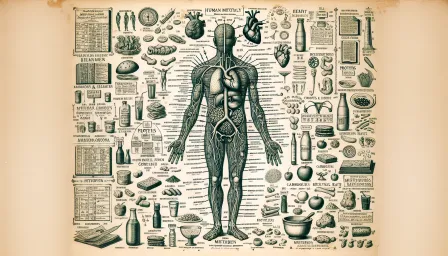How Metabolic Rate and Genetics Work Together to Influence Your Health

Explore the intricate relationship between metabolic rate and genetics. Learn how these factors can influence your overall health and discover valuable insights to optimize your wellbeing.
Your metabolic rate and genetics are two key factors that significantly influence your health. Understanding the interplay between them can help you make more informed decisions about your lifestyle and healthcare. This article delves into how these elements affect each other and what you can do to optimize your health.
Understanding Metabolic Rate
Metabolic rate refers to the amount of energy your body uses to maintain basic physiological functions such as breathing, circulation, and cell production. There are two main types of metabolic rates:
- Basal Metabolic Rate (BMR): The number of calories your body needs to maintain basic physiological functions while at rest.
- Resting Metabolic Rate (RMR): Similar to BMR but can include small amounts of energy used for digestion and other minor activities.
Factors Affecting Metabolic Rate
Several factors can influence your metabolic rate, including:
- Age: Metabolic rate generally decreases as you age due to loss of muscle mass.
- Gender: Men typically have a higher metabolic rate compared to women due to greater muscle mass.
- Body Composition: Muscle tissue burns more calories than fat tissue, impacting metabolic rate.
- Hormonal Balance: Hormones like thyroid hormone can significantly affect your metabolism.
The Role of Genetics in Metabolism
Genetics play a crucial role in determining your metabolic rate. Your genetic makeup can influence various aspects of metabolism, including:
- Efficiency of Energy Use: Genetic variations can affect how efficiently your body converts food into energy.
- Appetite Regulation: Genes can influence the hormones that regulate hunger and satiety.
- Metabolic Disorders: Conditions like hypothyroidism or hyperthyroidism can be linked to genetic factors.
- Fat Storage: Some people are genetically predisposed to store fat more easily than others.
Genetic Predisposition to Obesity
Studies have identified specific genes associated with a higher risk of obesity. For instance, the FTO gene has been linked to higher body mass index (BMI) and increased risk of obesity. Understanding these genetic factors can help in developing personalized treatments and prevention strategies.
The Interaction Between Metabolic Rate and Genetics
The interaction between metabolic rate and genetics is complex and multifaceted. Here are some key insights:
Genetic Influence on Metabolic Rate
Your genetic background can influence how your body responds to different dietary and lifestyle factors. For example, some people might experience a slower metabolic rate despite maintaining a healthy diet and physical activity, largely due to their genetic makeup. Conversely, others might have a faster metabolic rate regardless of their lifestyle choices.
Epigenetics and Metabolism
Epigenetics refers to changes in gene expression that do not involve alterations to the DNA sequence itself. Environmental factors such as diet, stress, and physical activity can cause these changes, subsequently affecting metabolism. For instance, a high-fat diet can lead to epigenetic changes that slow down metabolic rate.
Practical Tips to Optimize Metabolic Health
While you can't change your genetics, you can take steps to optimize your metabolic health. Here are some practical tips:
Nutrition
A balanced diet rich in whole foods can support a healthy metabolism. Focus on:
- Protein: Consuming an adequate amount of protein can help maintain muscle mass, which in turn supports a higher metabolic rate.
- Fiber: Foods high in fiber can help regulate blood sugar levels and promote satiety.
- Healthy Fats: Incorporate sources of healthy fats, such as avocados and nuts, to support hormonal balance.
Physical Activity
Regular exercise is crucial for maintaining a healthy metabolic rate. Consider incorporating both aerobic exercises and strength training into your routine. Strength training, in particular, can help build muscle mass, which increases metabolic rate.
Sleep and Stress Management
Adequate sleep and effective stress management are also important for metabolic health. Poor sleep and chronic stress can disrupt hormonal balance, leading to a slower metabolic rate.
Regular Health Check-ups
Visit your healthcare provider regularly for check-ups. Monitoring parameters such as thyroid function can help identify any underlying issues that might affect your metabolic rate.
Cutting-Edge Research and Future Directions
Ongoing research continues to explore the intricate relationship between metabolic rate and genetics. Advances in genomic technologies and personalized medicine hold promise for developing targeted interventions that can help optimize metabolic health at an individual level.
Conclusion
Understanding how metabolic rate and genetics work together to influence your health can empower you to make informed lifestyle choices. While genetics play a significant role, adopting healthy habits such as balanced nutrition, regular exercise, and stress management can help optimize your metabolic health. Staying informed about scientific advancements can further guide you in making decisions that align with your individual health needs.



























